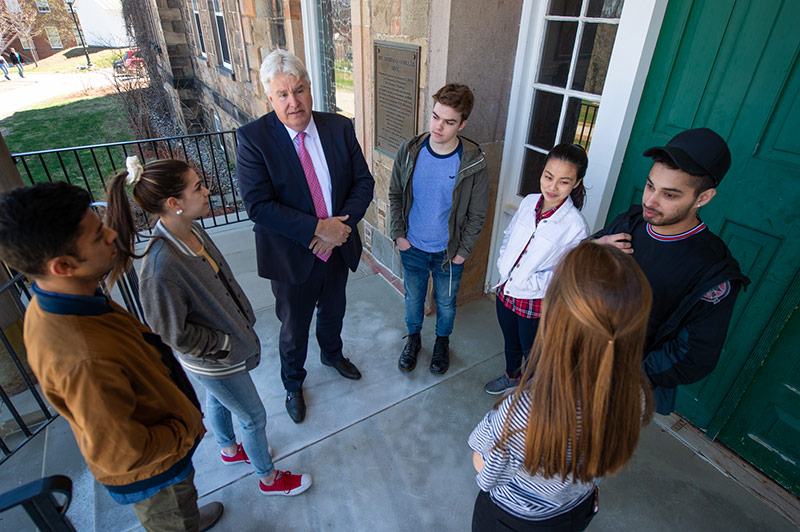We all have a stake in the strength of higher education in New Brunswick
Author: Dr. Paul Mazerolle
Posted on Sep 4, 2019
Category: UNB Fredericton , UNB Saint John

The following commentary appeared in the Sept. 4, 2019 edition of the Telegraph-Journal under the headline “We all have stake in higher education in N.B.”
Recent commentary on the role, value and accountability of universities in New Brunswick have painted a picture that universities are over-funded, unaccountable, and not preparing students for the future. Having worked at universities in America, Australia and Canada over the past 25 years, I can say unequivocally that such conclusions are not consistent with current reality.
Here is why I say this.
In any modern economy, universities are well placed for fostering job growth, increasing social mobility, advancing innovation, and driving industry competitiveness.
Questions about accountability are important, yet are best informed when they are based on fact.
The New Brunswick economy wins when students acquire the education and skills they need to thrive in their future careers. The New Brunswick community benefits economically, socially and culturally by investing in and supporting a healthy, post-secondary system that educates and inspires students and fosters research that delivers a social dividend to the community.
With an established reputation across Canada as a powerhouse of innovation and entrepreneurship, UNB has played a fundamental role in the development of new industries such as aquaculture, cybersecurity, geomatics and energy. The benefits of these new industries are real and measurable.
A few years ago, we asked an external firm to examine the economic contribution UNB makes to our province. As a result, we know that UNB contributes around $1.2 billion every year to the provincial economy. Start-up and spin-off companies born on our campuses contribute close to $50 million in added income. Combined, UNB drives about 4.5% of New Brunswick’s GDP.
More difficult to quantify but equally important is the value we bring as an instrument of social transformation. Our faculty, researchers and students are motivated to improve the lives of New Brunswickers beyond the economic sphere, in areas like nursing education, family violence and mental health.
Collectively, these results reflect an extremely positive return on investment to the New Brunswick community.
A pressing challenge for New Brunswick in the years ahead is the estimated loss of jobs as an aging workforce retires and jobs of the past disappear as a function of automation. These impending changes represent a challenge none of us can ignore. I think this also represents an opportunity to reshape our workforce and prepare New Brunswick for a more prosperous future.
As the President of UNB, I believe that we can do more, and that we have a responsibility to do more. We need to work together with our communities, our governments, and our industry and sector partners to seize some very real growth opportunities in areas like cybersecurity, clean energy, advanced manufacturing and health care innovation, among others. The chance to be a part of this economic transformation and make a significant difference in the place where I grew up is what attracted me to return home from decades overseas.
But we can’t do this alone. We need a collaborative approach to post-secondary education in this province, and we look forward to sitting at the table to make that happen.
Our government argues that universities need to be nimble and responsive to changes in society and the economy. We don’t disagree. However, increased bureaucratic intervention and red tape has seldom made anything more flexible, and it is not the answer here.
The challenge for university leaders is threefold. First, to continue to lead universities that offer programs that make a difference. Our programs must be relevant and responsive to emerging opportunities, and they must have the flexibility to give access to a wider variety of students – from high school graduates to professional learners. Second, to continue to invest in research that makes a difference. We need to grow our research strengths and ensure that outcomes create real social and economic opportunities. Third, to continue to show the wider community how we make a difference. We need to demonstrate the enduring value of universities, in that they represent crucial investments for fostering economic and social progress as opposed to sunk costs.
Governments, employers, students and universities have all worked well together in the past, and I believe that we are all working towards the same goal today. If we want to be successful in reshaping our workforce to respond to the needs of the next 10 years and beyond, we need to be able to think long-term. This requires predictability – in funding, in student assistance and in policy. Only then will we have a post-secondary education system that truly benefits all. The people of New Brunswick deserve no less.
